SXSW 2025 Spotlights Psychedelics Amid Shifting Cannabis Discourse
SXSW 2025, held from March 7 to 15 in Austin, Texas, prominently featured a Psychedelics Track, highlighting the expanding role of psychoactive substances in culture, medicine, and policy.
The Psychedelics Track offered a diverse array of sessions aimed at broadening the understanding of psychoactive substances. Researchers, healthcare professionals, and investors gathered to discuss efforts to dissolve stigma and reshape perceptions of psychedelics.
Notable sessions included “Psychedelics in the Media,” which examined the impact of mainstream media on public perception and policy, and “The Social Justice Promise of Psychedelic Decriminalization,” addressing the complexities of integrating social justice efforts with drug policy reforms. The societal impacts of drug abuse, particularly focusing on cannabis, were also discussed to inform public policy and promote prevention strategies.
A particularly impactful panel, “Behind the Scenes of the ‘Psychedelic Renaissance,’” featured discussions on the ethical considerations of psychedelic patents and the evolving landscape of psychedelic research. Panelists, including journalists and legal experts, engaged in candid conversations about the challenges and opportunities within the psychedelic community. The implications of using psychedelics in conjunction with other drugs were highlighted, emphasizing the unpredictable effects and increased risks associated with such combinations.
Industry Reflections and Challenges
The festival also served as a platform for introspection within the psychedelic community. Rick Doblin, founder of the Multidisciplinary Association for Psychedelic Studies (MAPS), delivered a talk titled “MDMA-Assisted Therapy: Going to the Trauma, Not the Profits.” Doblin reflected on the journey of MDMA research, emphasizing the importance of prioritizing healing over commercialization. His address underscored the challenges faced in gaining regulatory approval and the need for ethical considerations in the burgeoning psychedelic industry.
Community Engagement and Networking
Beyond formal sessions, SXSW 2025 fostered community engagement through events like Vicente LLP’s Annual Austin Social, which brought together the cannabis and psychedelics communities to support plant medicine research. Additionally, resources such as the Fireside Project provided confidential emotional support during or after psychedelic or cannabis experiences, emphasizing the festival’s commitment to attendee well-being.
Attendee Experiences and Cultural Context
Attendees reported a range of experiences, from profound personal insights during psychedelic sessions to reflections on the shifting landscape of cannabis discourse at the festival. The emphasis on psychedelics resonated with many, highlighting a societal shift toward exploring alternative therapies and decriminalization efforts. Jane C. Hu, a journalist covering psychedelics, noted the “mullet approach” to psychedelics—“business up front, party in the back”—suggesting a strategy to professionalize the field while retaining its transformative essence.
Austin’s unique cultural and political landscape provided an intriguing backdrop for these discussions. As a progressive enclave within a traditionally conservative state, the city’s evolving stance on psychedelics reflects broader national trends toward acceptance and exploration of these substances.
Overall, SXSW 2025 illuminated the evolving dialogue surrounding psychedelics, offering attendees a comprehensive exploration of these substances’ roles in shaping future cultural, medical, and policy landscapes.
SXSW 2025 Festival Overview
SXSW 2025 is set to be a premier event that showcases the best in music festivals, film, and interactive media. Taking place from March 7-15 in the vibrant city of Austin, Texas, this year’s festival promises an eclectic mix of live panels, special events, and cinematic showcases. Attendees can look forward to a comprehensive guide to plan their SXSW experience, ensuring they make the most of the diverse offerings. As always, more exciting details about the event will be unveiled as we approach early 2025, building anticipation for what is sure to be an unforgettable festival.
Psychedelic Drugs and Their Effects
Psychedelics, a fascinating class of drugs, are known for their ability to profoundly alter perception, thought, and mood. These substances can be found naturally in various plants, fungi, and seeds, or synthesized in laboratories. Available in multiple forms such as tablets, blotter paper, dried mushrooms, and crystalline powders, psychedelics offer a range of experiences that can last several hours. The effects of these drugs are influenced by the type of psychedelic used, the individual’s mood, and the surrounding environment, making each experience unique. Using psychedelics in conjunction with other drugs can have unpredictable effects, including increased anxiety or heightened physical responses. As interest in these substances grows, understanding their impact becomes increasingly important.
Set and Setting: The Importance of Environment in Psychedelic Experiences

The concept of ‘set and setting’ is crucial when it comes to psychedelic experiences. ‘Set’ refers to the individual’s mindset, while ‘setting’ pertains to the physical and social environment in which the drug is consumed. Understanding the risks associated with drug abuse, particularly in the context of set and setting, is essential to inform public policy and promote prevention strategies. A positive state of mind, coupled with a safe and comfortable environment, can significantly enhance the experience, reducing the risk of a bad trip. Conversely, using psychedelic drugs in a stressful or anxious state can lead to unpleasant outcomes. Ensuring a calm, quiet, and relaxed setting is key to fostering a beneficial and insightful psychedelic journey.
Conference Sessions and Featured Speakers on Medical Cannabis
The SXSW Conference is renowned for its lineup of influential keynote and featured speakers from around the globe. This year, attendees can look forward to insights from IBM CEO Arvind Krishna, Bumble CEO Lidiane Jones, and acclaimed author Amy Gallo. Additionally, there were sessions that discuss the societal impacts of drug abuse, emphasizing the importance of understanding the risks associated with substance misuse. These sessions offer unparalleled opportunities for learning, professional development, and networking. As we approach early 2025, more keynote speakers and featured sessions will be announced, promising a rich and diverse program that caters to a wide array of interests and industries.
Shifting Cannabis Discourse: Addressing Cannabis Use Disorder
The discourse around cannabis is undergoing a significant transformation, with an increasing number of countries legalizing its use for both medicinal and recreational purposes. However, it is crucial to understand the negative consequences and societal impacts of drug abuse, particularly focusing on cannabis.
Cannabis plants, which have been cultivated since at least the 3rd millennium BCE, have long been valued for their psychoactive properties. Despite being illegal in most countries throughout the 20th century, the rise of medical cannabis dispensaries and growing acceptance of cannabis use are reshaping public perception. Concerns about secondhand cannabis smoke and the negative effects of cannabis use disorder are being studied, highlighting the complex nature of cannabis consumption. The cannabis plant contains over 100 chemical compounds, including THC and CBD, each with distinct effects on the body. While consuming cannabis can lead to euphoria and increased appetite, it can also cause anxiety and paranoia, and is linked to various mental health conditions. Despite these concerns, medical cannabis is being explored for its potential benefits in treating a range of conditions, marking a new era in the understanding and utilization of this ancient plant.
Cannabis Use and Health Effects
Cannabis use can have a range of short-term and long-term effects on both physical and mental health. In the short term, smoking cannabis can impair cognitive functions, memory, and decision-making skills. It can also increase heart rate and cause difficulty breathing. Long-term use, especially when started during adolescence, can lead to addiction, decreased mental ability, chronic coughing, and a higher susceptibility to respiratory infections. Additionally, some users may develop cannabinoid hyperemesis syndrome, characterized by severe nausea and vomiting.
Exposure to secondhand cannabis smoke is another concern, as it can be harmful to others, particularly children and pregnant women. Consuming cannabis can also elevate the risk of developing mental health conditions such as anxiety, depression, and psychosis, especially in individuals with a family history of these issues. As the discourse around cannabis continues to evolve, understanding these health effects is crucial for informed consumption.
Medical Cannabis and Its Benefits
Medical cannabis, often referred to as medical marijuana, has shown promise in treating a variety of medical conditions. Patients suffering from chronic pain, nausea and vomiting due to chemotherapy, muscle spasms, and seizures have found relief through medical cannabis. This therapeutic use can be administered in several forms, including smoking, vaporizing, and edibles, each offering different benefits and drawbacks.
Medical cannabis dispensaries play a vital role in providing patients with access to high-quality cannabis products, which are typically regulated by state laws to ensure safety and efficacy. However, it is essential for patients to use medical cannabis under the guidance of a healthcare professional to minimize potential negative effects and ensure the best therapeutic outcomes.
Cannabis Products and Industry Trends
The cannabis industry has experienced significant growth, leading to the development of a wide array of cannabis products. Edibles, topicals, and concentrates are among the popular alternatives to smoking cannabis, often marketed as safer options. However, the long-term effects of these products are not yet fully understood, necessitating cautious consumption.
A notable trend in the industry is the rise of cannabis-infused products, such as beverages and snacks. These items offer a convenient and discreet way to consume cannabis, but their effects can be unpredictable and vary from person to person. As the industry continues to innovate, consumers should remain informed about the potential risks and benefits of these new products.
Psychedelics and Policy
Psychedelic drugs, including cannabis, have been subject to various policies and regulations throughout history. Recently, there has been a growing trend towards the decriminalization and legalization of cannabis, with several countries and states permitting its recreational and medical use. This shift reflects a broader acceptance of the cannabis plant and its potential benefits.
However, the use of other psychedelic drugs, such as LSD and psilocybin, remains largely illegal. These substances are often associated with negative effects, including addiction and mental health conditions. It is crucial to approach the use of any psychedelic drug with caution and under the guidance of a healthcare professional to mitigate risks.
The music festival industry has also seen an increase in the use of psychedelic drugs, with some festivals allowing their use on-site. While this can enhance the festival experience for some, it is important to recognize the potential negative effects, especially in crowded and noisy environments. As the conversation around psychedelics continues to evolve, responsible use and awareness of the associated risks remain paramount.






 How to Store Magic Mushrooms
How to Store Magic Mushrooms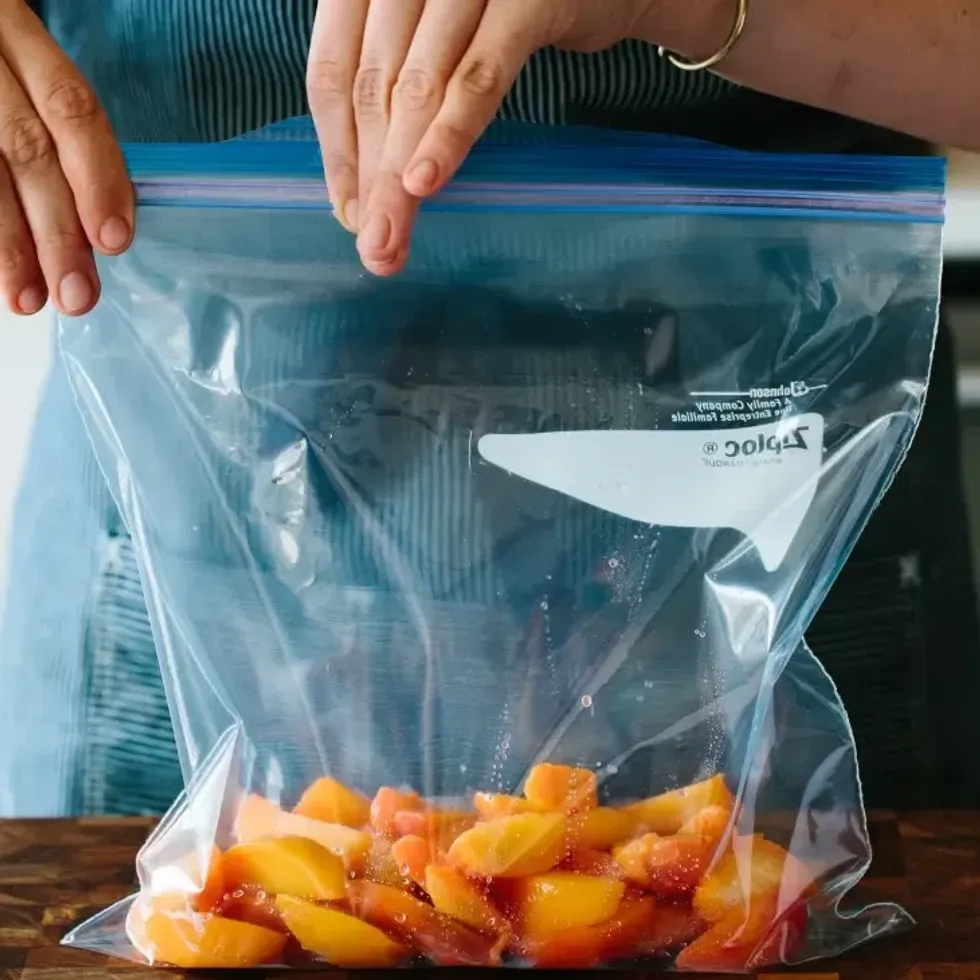 How to Store Magic Mushrooms
How to Store Magic Mushrooms How to Store Magic Mushrooms
How to Store Magic Mushrooms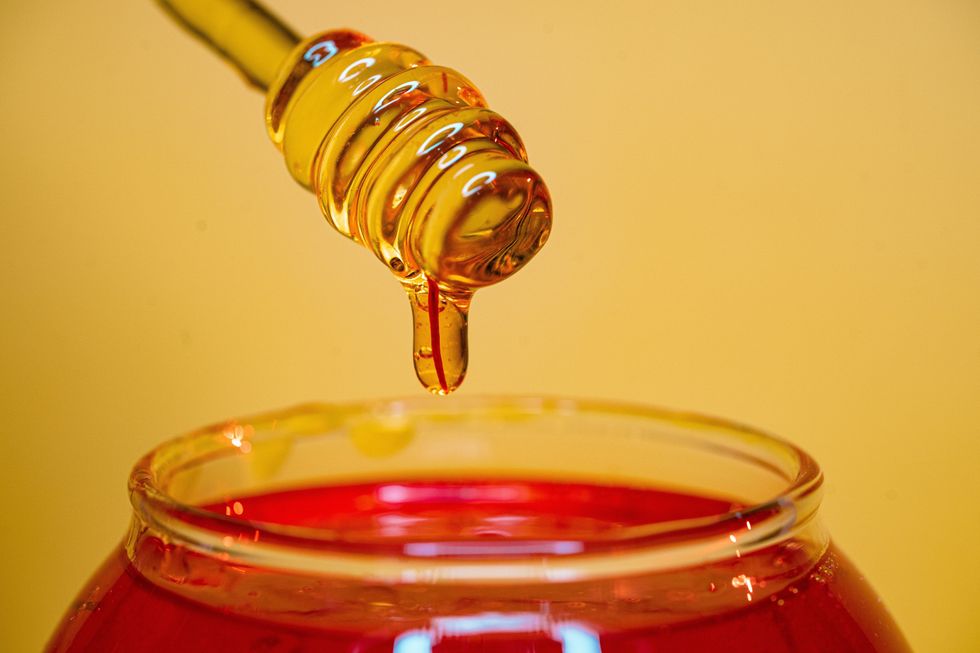 How to Store Magic Mushrooms
How to Store Magic Mushrooms How to Store Magic Mushrooms
How to Store Magic Mushrooms





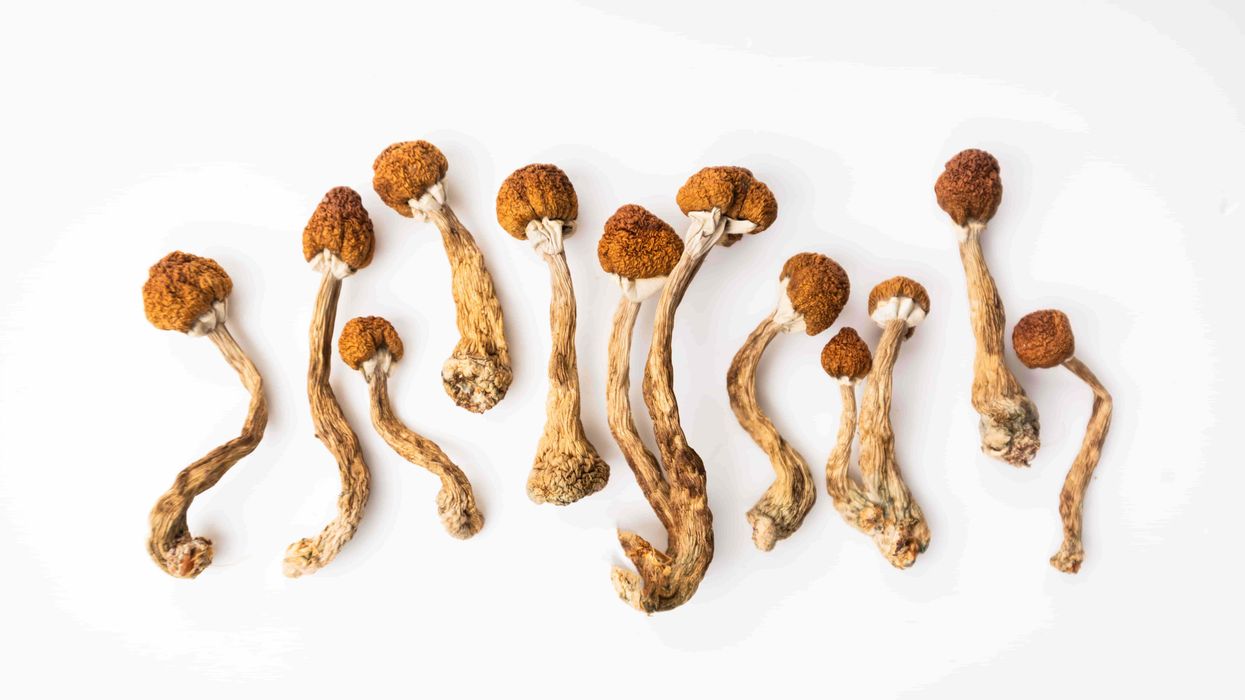



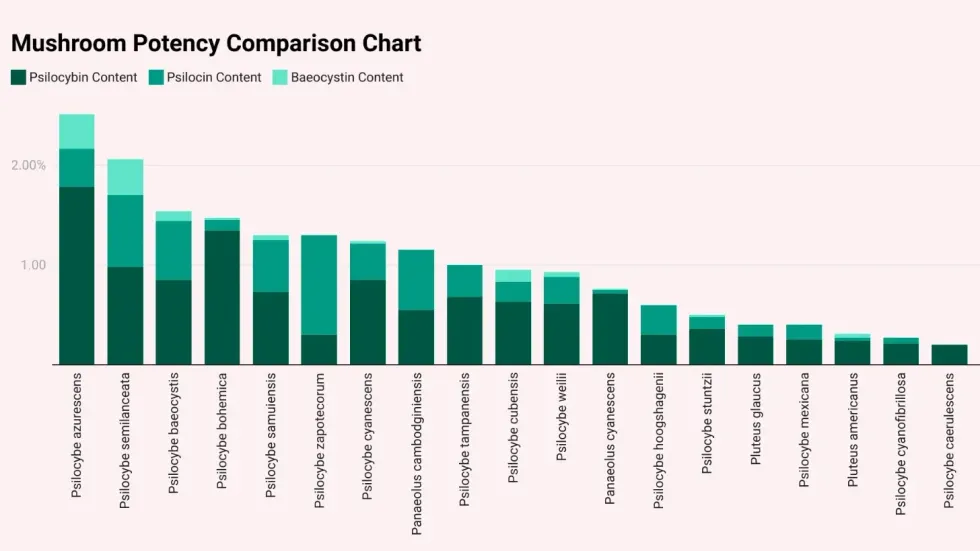 List of the strongest mushroom speciesTripsitter
List of the strongest mushroom speciesTripsitter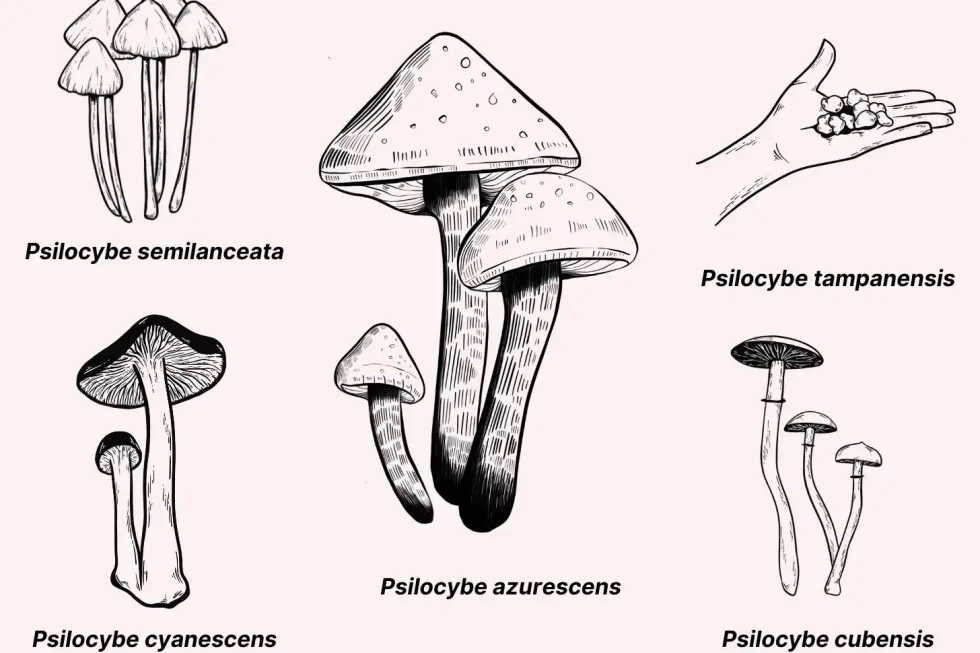 PsilocybeTripsitter
PsilocybeTripsitter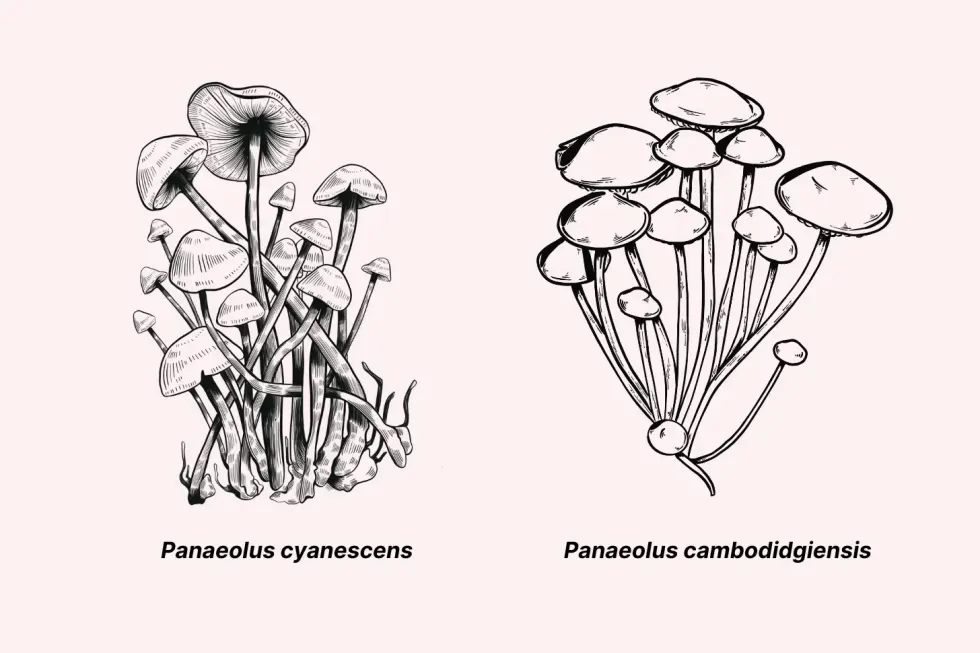 Panaeolus: This species contains (at least) 13 psychoactive members. They’re generally considered weaker than Psilocybe mushrooms and produce significantly lower yields when cultivated.Tripsitter
Panaeolus: This species contains (at least) 13 psychoactive members. They’re generally considered weaker than Psilocybe mushrooms and produce significantly lower yields when cultivated.Tripsitter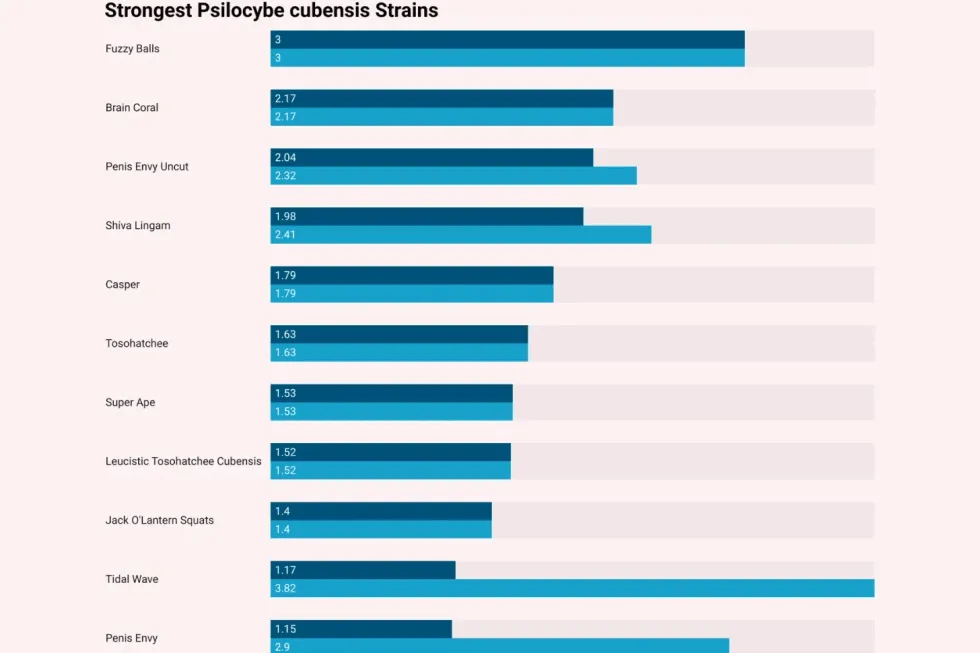 List of the strongest magic mushroom strainsTripsitter
List of the strongest magic mushroom strainsTripsitter